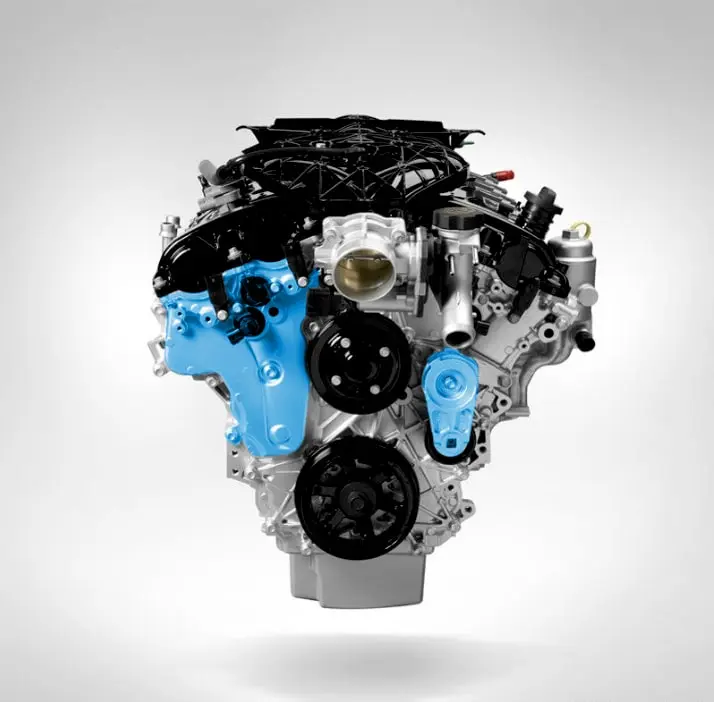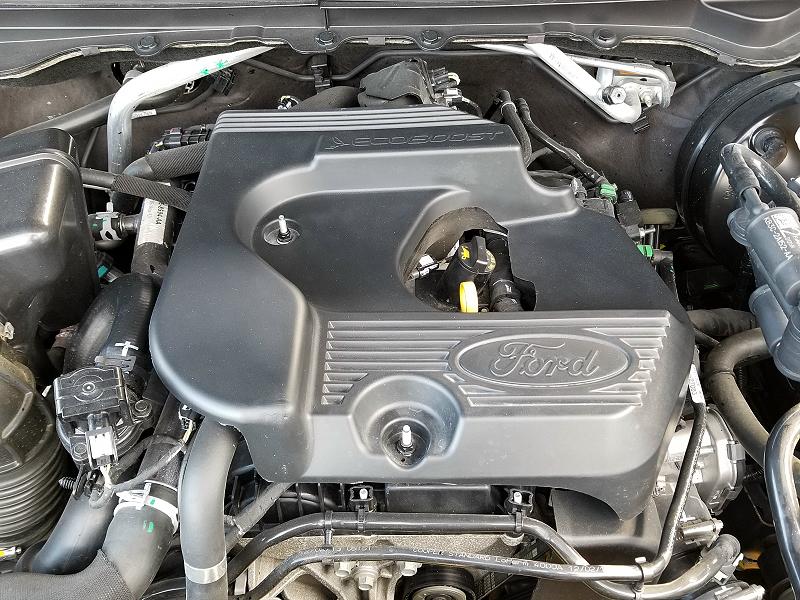Why the 2.2 Ford Ranger Engine Is a Popular Choice for Rugged and Reliable Performance
Why the 2.2 Ford Ranger Engine Is a Popular Choice for Rugged and Reliable Performance
Blog Article
How to Select the Right Automobile Engine for Maximum Efficiency and Effectiveness
Selecting the suitable cars and truck engine to accomplish an ideal balance of efficiency and effectiveness requires a nuanced understanding of various engine kinds and their particular qualities (2.2 ford ranger engine). Variables such as engine displacement, the number of cylinders, and fuel kind play a critical role in determining both power outcome and gas economic situation.
Recognizing Engine Types
When selecting an auto, among the most essential components to take into consideration is the engine kind, which works as the heart of the vehicle. The engine type considerably affects the auto's total performance, longevity, and suitability for your driving needs. There are mainly three engine types to take into consideration: inner combustion engines (ICE), hybrid engines, and electrical engines.
Inner combustion engines remain the most typical, operating fuel or diesel. They are recognized for their power and acceleration, making them ideal for performance-oriented vehicles. They may fall brief in gas effectiveness and environmental effect.
Crossbreed engines incorporate an internal combustion engine with an electrical motor, supplying a balance in between performance and gas economic situation. They are increasingly popular for vehicle drivers seeking minimized exhausts while still providing appropriate power.
Electric engines, powered entirely by batteries, are obtaining grip due to their ecological advantages and lower running costs. They give instant torque and a silent driving experience, making them perfect for city travelling.

Performance vs. Efficiency
Selecting the appropriate engine kind involves weighing the compromises in between performance and efficiency. Performance usually describes just how well an engine can supply power and velocity, which is frequently related to bigger displacement engines or those with turbocharging capacities. These engines generally provide thrilling driving experiences and quick action times, making them preferred among enthusiasts.
On the various other hand, efficiency focuses on gas economic situation and reduced exhausts. Smaller sized engines, especially those equipped with innovative technologies such as direct gas injection and variable shutoff timing, have a tendency to supply far better miles per gallon and reduced carbon impacts. While these engines may compromise some power compared to their larger counterparts, they often succeed in everyday driving circumstances where high efficiency is not always required.
Ultimately, the selection between performance and performance depend upon private concerns. A chauffeur that values perky driving could focus on a high-performance engine, while a person looking for affordable travelling might favor a reliable alternative. Comprehending these trade-offs is crucial for making a notified decision that aligns with your driving requirements and way of living, making certain that the chosen engine kind enhances your expectations for both performance and performance.
Secret Specifications to Take Into Consideration
Comprehending essential specifications is necessary for making an informed choice about the best automobile engine. When selecting an engine, several vital aspects warrant consideration to ensure optimum efficiency and efficiency.
It shows the total volume of the engine's cylinders and generally correlates with power output; bigger variations typically generate even more power. Engines with even more cyndrical tubes can try this out give smoother operation and higher power, while smaller configurations can improve gas effectiveness.
In addition, the engine's setup, whether inline, V-type, or rotating, influences the total layout and performance characteristics of the lorry - 2.2 ford ranger engine. Turbocharging and turbo charging innovations need to additionally be assessed; these increase an engine's power result without dramatically raising its size, thus improving performance
Gas type is one more essential consideration, as it affects both efficiency and expenses. The engine's compression proportion impacts effectiveness and power shipment; a higher ratio typically leads to far better performance, but might require exceptional gas. By meticulously analyzing these specifications, you can choose an engine that straightens with your performance and efficiency goals.
Examining Driving Demands
Examining driving demands is a fundamental step in determining the appropriate automobile engine for your way of life and usage patterns. If your driving mainly consists of brief commutes in urban settings, a smaller engine with excellent fuel performance might be adequate.
Think about the terrain you usually navigate. Hilly or tough landscapes might require an engine with higher torque for better efficiency. Furthermore, review passenger and freight needs; larger family members or those who transfer products might profit from automobiles with increased power and capacity.
It's additionally crucial to assess your gas preferences. Diesel motor frequently use premium torque and gas economy for larger cars, while gas engines may offer a smoother and quieter adventure. Last but not least, consider ecological considerations, as crossbreed or electrical engines can offer a more sustainable option without site web giving up efficiency. By extensively comprehending your driving demands, you can make an educated decision that lines up with both efficiency expectations and performance goals.
Future Patterns in Engine Innovation
As the vehicle sector proceeds to progress, developments in engine innovation are paving the means for extra efficient and sustainable driving experiences. One significant pattern is the change toward electrification, with hybrid and totally electric powertrains acquiring importance. Automakers are investing greatly in battery modern technology to improve energy density and decrease charging times, eventually boosting the usefulness of electrical vehicles (EVs)
One more arising fad is his explanation the development of hydrogen fuel cell engines. 2.2 ford ranger engine. These systems provide the possibility for zero-emission driving while supplying refueling times comparable to standard fuel engines. Furthermore, innovations in combustion innovation, such as variable compression ratios and enhanced turbocharging, are enhancing conventional internal combustion engines for far better efficiency and performance
Digital integration is additionally an essential element of future engine modern technology. The application of fabricated knowledge and maker knowing allows for real-time data analysis, making it possible for smarter engine monitoring systems that adjust to driving conditions and boost gas efficiency.

Verdict
Finally, selecting the suitable vehicle engine necessitates a comprehensive evaluation of numerous elements, consisting of engine type, efficiency demands, and effectiveness objectives. By comprehending the differences between various engine kinds and considering vital specifications, individuals can straighten their options with specific driving demands. As advancements in engine technology continue to arise, continuing to be notified concerning future fads will even more boost decision-making, inevitably bring about an automobile that balances efficiency and fuel performance properly.
Choosing the appropriate vehicle engine to achieve an optimum equilibrium of efficiency and efficiency requires a nuanced understanding of numerous engine types and their particular attributes. There are largely three engine types to think about: inner burning engines (ICE), hybrid engines, and electrical engines.
Efficiency normally refers to just how well an engine can deliver power and velocity, which is commonly connected with bigger variation engines or those with turbocharging capabilities. Diesel engines often offer superior torque and fuel economic situation for heavier automobiles, while gasoline engines might give a smoother and quieter experience.In conclusion, picking the suitable car engine necessitates a comprehensive assessment of various elements, including engine kind, performance demands, and efficiency goals.
Report this page